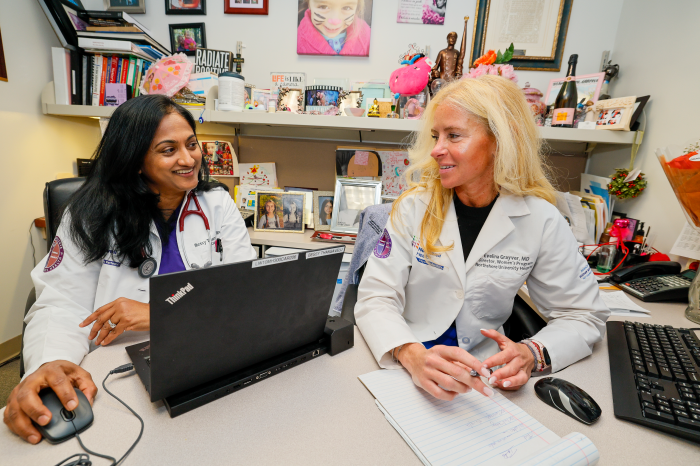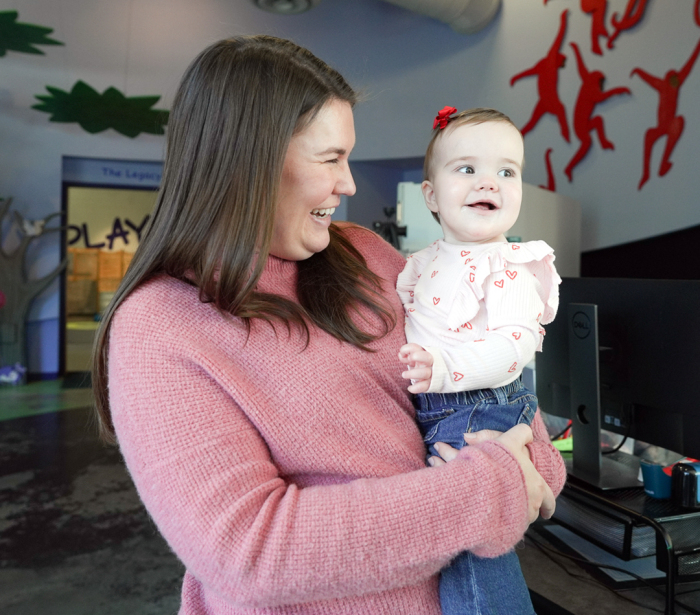Over 38 million Americans live with diabetes, according to the U.S. Centers for Disease Control and Prevention. While a diabetes diagnosis may seem daunting, experts say that individuals can effectively manage the condition and lead healthy, fulfilling lives with education and empowerment.
Diabetes is a complex disease with various types stemming from different causes. “At its core, diabetes involves disruptions in glucose and lipid metabolism, leading to significant health challenges,” explains Dr. Silvana Obici, chief of the division of Endocrinology at Stony Brook Medicine.
The two primary forms of diabetes are type 1 and type 2. Type 1 is an autoimmune condition that typically affects children and young adults, while type 2 is more common and often linked to insulin resistance and obesity, Obici explains. Approximately 80 million Americans have pre-diabetes, and about 90% of them are unaware, she says.
“The good news is that with proactive health management and commitment to lifestyle changes, many can lead healthy lives and even achieve remission,” says Obici.
“Diet is paramount in prevention, managing, and reversing the disease,” says Dr. Dawn Siglain, naturopath and licensed acupuncturist a Wellness Matters in South Huntington. “[A] proper diet full of nutrients, antioxidants, and fiber helps the tissues and organs of the body thrive.” Including protein in your diet can assist in slowing down sugar absorption. She recommends plant-based protein to help stabilize blood sugar.
For severe diabetes, it may be necessary to eliminate all sugars—including simple and complex carbohydrates and even fruit — to help prevent blood sugar spikes and crashes, says Siglain. Consume antioxidant-rich and colorful foods and incorporate supplements such as vitamins A, C, E, D, glutathione, NAC and Alpha Lipoic Acid. Herbal teas and cinnamon also help control blood sugar, she adds.
Physical activity is crucial. Even a short walk can help get blood glucose moving, stimulate blood flow and muscle contractions, and reduce complications associated with a sedentary lifestyle, says Siglain.
Because managing diabetes impacts daily living and diabetes never sleeps, many patients suffer from depression, says Meghan Costigan Kraus, F.N.P.-B.C., C.D.C.E.S., director of Diabetes Services/endocrine nurse practitioner, Mount Sinai South Nassau. Practicing healthy habits for both body and mind is critical. A daily 30-minute walk as well as meditation, too, can help reduce stress and boost mental health, she says.
Aim for a good night’s sleep. “Poor sleep can lead to cravings for carbohydrates, complicating diabetes management,” Kraus explains.
There’s a “camaraderie that comes from sharing experiences,” Kraus adds. Joining a support group can help individuals with diabetes feel like they’re not alone.
Technological advancements bring hope, too. Continuous glucose monitors and medications like Ozempic and Mounjaro — which help control blood sugar — “have really transformed the management of type 2 diabetes,” Kraus says.
































